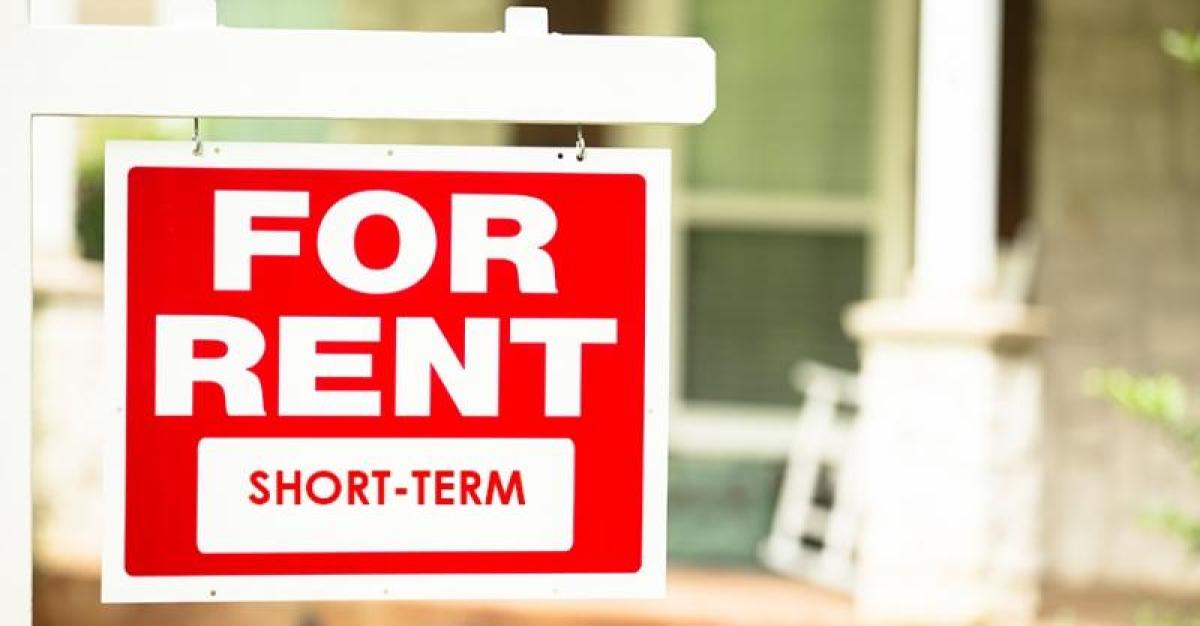Q&A: How to Protect Yourself When Booking Short-Term Rentals?

When traveling for the holidays, more people are choosing to book a short-term rental rather than stay at a hotel. However, what should you be looking for to make sure your experience with the rental is a positive one?
Karen Xie is an associate professor in the Daniels College of Business. Her research focuses on the use of technology-driven innovations to empower the service industry, primarily the financial and lodging industries. Her work surrounding Airbnb has helped the Denver City Council pass regulations on short-term rental services. Xie took a moment to share her insight on what we should be looking out for when paying for a short-term rental.
Are there any red flags or scams consumers should be aware of when looking for rental properties?
During the holiday seasons, people often choose properties on short-term rental properties on platforms such as Airbnb, VRBO and HomeAway for family reunions, parties, and vacations. However, they likely face a higher chance than usual to fall victim to scams like fraudulent listings. There are a few red flags of common scams that travelers should be aware:
- The property is too good to be true. If you have booked a very nice property (based on the pictures) at a very competitive price, don’t celebrate yet. Scammers tend to use nicely photoshopped pictures to get you. Once you have booked a property and are provided an address, it does not hurt to search for the property on Google Maps, where you can see the details (property or building pictures, neighborhood and street view, nearby facilities such as restaurants and bars, etc.). Use the details you find to match the property information provided online. If you find the property is overpromising based on your Google Maps search, it might be a scam. You should probably cancel the booking and file for a refund with the platform.
- The homeowners ask you to transfer money outside of the platform. When you book a property to stay on a platform, everything, including the payment and the rental contract, should go through the platform. The platform serves as a middleman overseeing the transaction between two parties and it releases the payment to the homeowners only when the transaction is completed (consumers check out the property). If the homeowner asks you to send him/her money in a money order or wire transfer or any payment off-site, it is likely a scam. Also note that platforms do not send your money to each other. If you find places to book on websites other than Airbnb (apartments.com, craigslist, etc.) and get the same stories about having to pay a deposit and then an Airbnb "agent" will assist with getting into the property. All bogus, of course.
What rights do renters have?
Besides the legal rights to sue a homeowner (or even the platform itself), there are other things renters/travelers can do to protect themselves:
- Ask the platform to step in ASAP if any issues happen. In case you find issues such as the homeowner cancels the reservation during your stay, changes your reservations to another listing without your consent, or gives you the wrong lockbox code and cannot be reached, you should call the platform support as early as possible and ask them to step in. Rather than making every effort to argue with the homeowner, you should let the platform talk directly to the homeowner and solve the issue for you. Platforms hold the deposit payable to homeowners and have a better governance power on homeowner misconduct.
- Ask for a refund if an issue comes up during your stay. If you don’t feel your experience can be put back on track, submit a claim to ask for a refund from the platform. Travel issues such as the place is not safe or clean upon arrival, listing description is not accurate, key amentias are missing, etc. are often eligible for a refund with the platform. For example, Airbnb’s “Guest Refund Policy” and VRBO and HomeAway’s “Book with Confidence Guarantee” allows consumers to submit claims for refund.
- Save records if you spot anything wrong. This is similar to something you often do when picking up a rental car: take pictures and videos. To prove (or defend against) allegations of damage, it is always wise for you to take photos and video of a property during both arrival and departure. If you need to complain about any issues upon arrival, the photos will show the existing conditions. And if a homeowner claims that you trashed their place, pictures at departure time act as a good defense.
- Voice out by writing a review. Share your experience with others by posting a review on the platform. This is a way for others to learn from you and protect themselves from being mistreated.
How does technology influence how the service industry interfaces with consumers? Is it different during busy travel seasons like the holidays?
The service industry is traditionally known as a “people” business: it emphasizes the use of the human touch and interpersonal contact and involvement to shape consumer experience. However, this picture has changed with the advancement of technology, especially AI, which is already all around us, and touching many aspects of the service business.
Technology is gradually replacing the human touch, especially during busy travel seasons like holidays when the demand surges to challenge the service efficiency. For example, hotels encourage guests to check in the room using mobile apps from their phones without waiting in line to speak with a front desk agent. Hotels also automate the customer service with chatbots and never miss a chance to sell or help their guests. Restaurants offer guests tablets for them to order from the digital menu and also pay by sliding the credit card from the devices. Such a shortcut is only more often seen in short-term rental businesses. Without the homeowner showing up to greet the guests, they just get the key from the lockbox or type the password on electronic locks to access the properties. If the guests need anything during their stay (extra towels, etc.), they message the request to homeowners and a box with items needed will show up at the door. It is not uncommon to complete a stay in an Airbnb without meeting the homeowner.
Despite the increased efficiency, technology automates away the valuable interaction and engagement opportunities between service providers and their guests. You will miss the authenticity of staying and chatting with a local homeowner, if you can only search local information online. Also, it is probably unsafe to solely rely on technology because algorithms have bias and glitch holes. In a case where you are locked out of an Airbnb on a freezing cold night because you mistype the password for the third time, you will probably start realizing the importance of the old-fashioned human services.










